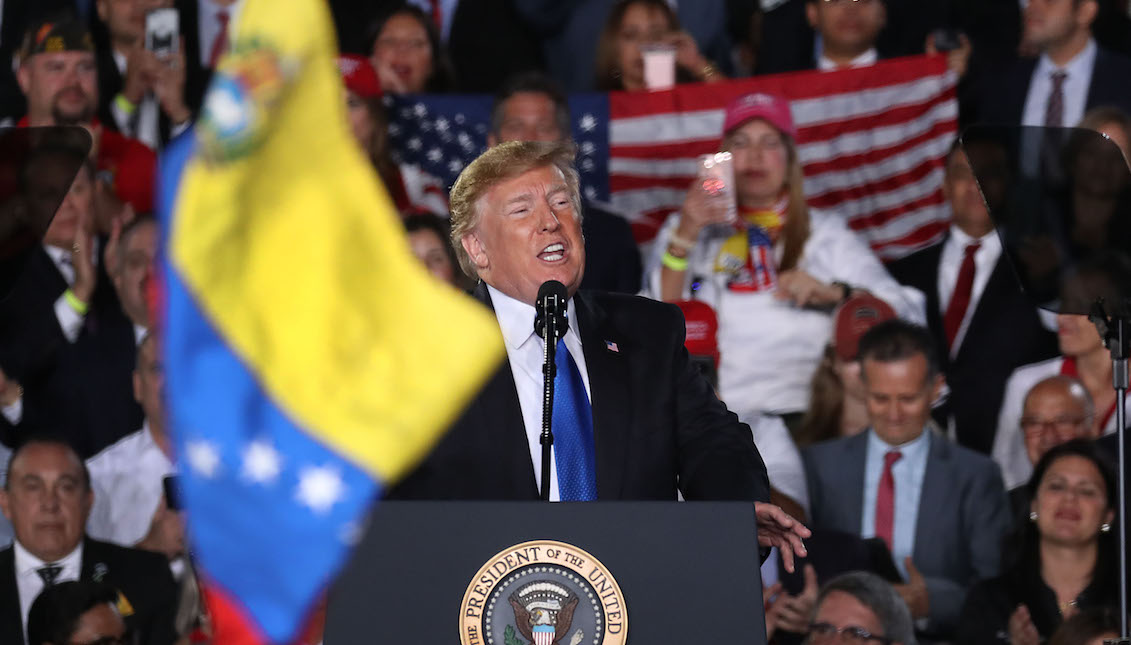
Could the Latino vote be Trump's ‘secret weapon’ for 2020?
Republicans believe so.
Since President Trump inaugurated the year boosting the sudden increase in Latino support for his presidency, Republicans have deployed a whole strategy to keep that trend intact.
They no longer only have the Hispanic margin that aligns with values intrinsic to the Party - such as the "right to life" or religion - but has solidified a campaign against the concept of "socialism" in Latin America.
The number one strategist in the matter has been Florida Senator Marco Rubio, who set the tone for measures against the Nicolás Maduro regime in Venezuela, changing the rhetoric among the immigrant community of this country in his state.
According to the analysis of NBC News, many of the Venezuelans residing in South Florida are inclined to grant their vote for Donald Trump’s reelection in 2020, only for his "strong positions" against the socialist regime in the Caribbean country.
And the Republican National Committee is very aware of that.
Many of the 221,800 Venezuelans living in the state are eligible voters and could guarantee a new Republican victory after Trump needed just 112,911 votes to win Florida in 2016.
"I think that will be a huge impact," said Republican National Committee director of Hispanic media, Yali Nunez. "You're going to see the Venezuelans voting for Republicans. You’re going to see a lot of people based on this issue solely voting for President Trump."
RELATED CONTENT
We must confess that they thought the strategy well though, because, coinciding with the Trump Administration, Latin America has experienced a radical shift towards new political discourses that antagonize the establishment of socialist regimes in countries like Venezuela, Bolivia, Brazil, and Argentina at the end of the twentieth century.
An example of this has been the victory of Jair Bolsonaro in Brazil during the elections of October 2018, which counted with more than 54% of the votes in a country undermined by violence, the cracking of infrastructure, and corruption deeply rooted in the political system.
But it has been the speech against the remains of the Chavist Revolution in Venezuela what guaranteed Trump a new base of voters whose priorities are far from those of other Hispanic communities in the country such as Puerto Rico, for example.
While the Administration imposes sanctions against the members of the Chavez leadership in Venezuela, it denies economic relief to the island and suspends collaborations with countries of the Northern Triangle, who were also stripped of programs such as the Temporary Protection Status (TPS).
Let's say it's a very selective pro-immigrant campaign.
For its part, the Democratic Party has joined very late the campaign against Maduro and in favor of the president in charge of Venezuela, Juan Guaidó, giving the President and his advisers the full advantage to monopolize the speech.
The reluctance of candidates like Bernie Sanders to call Nicolás Maduro "Dictator" and the incorporation of "socialism" into his campaign language have worked on its detriment.
On the contrary, this has helped Trump - who campaigned with the transformation of the immigrant into a scapegoat - to show off that he can also “count with” the Latino support.











LEAVE A COMMENT: